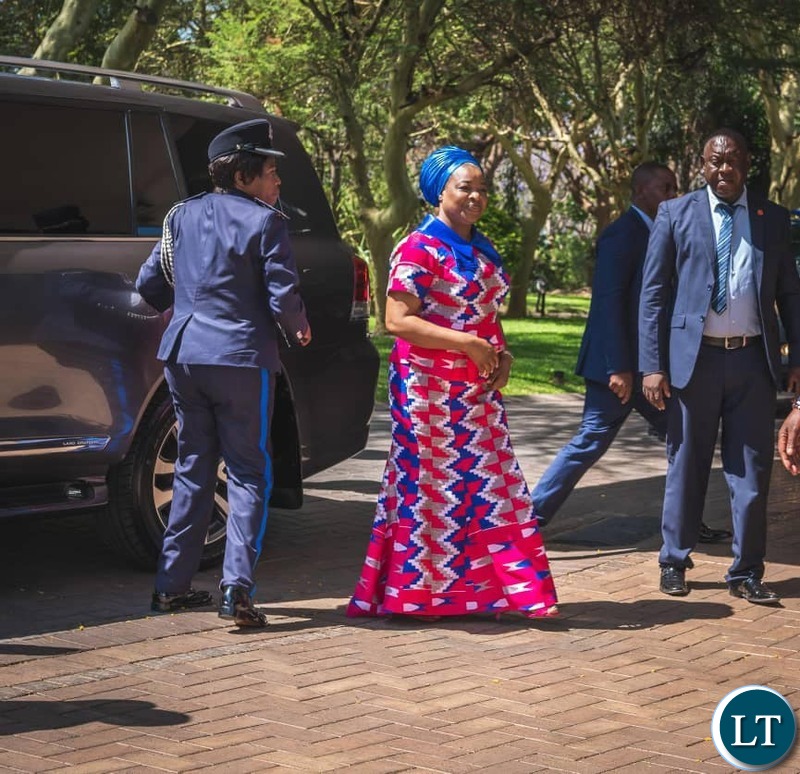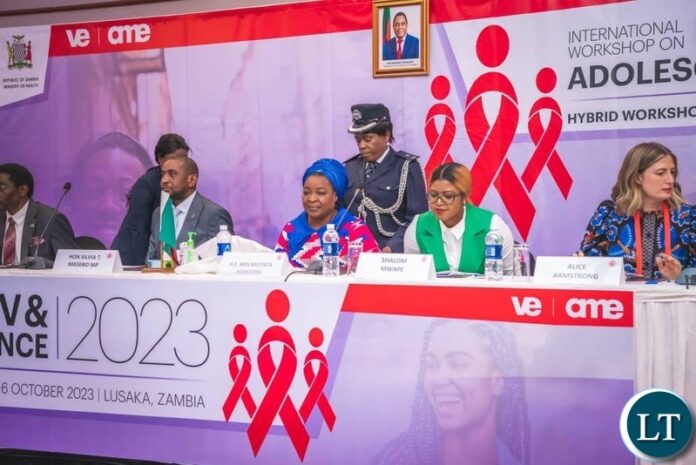The First Lady of Zambia, Mutinta Hichilema, inaugurated the International Workshop on HIV and Adolescence 2023 in Lusaka, emphasizing the need to address the unique challenges faced by adolescents in the fight against HIV.
During her opening remarks at the workshop, Mrs. Hichilema underscored the fact that today’s children are exposed to rapid technological advancements, which can influence their decision-making processes regarding health-related issues, including HIV prevention and treatment. She expressed her concern that many young people lack sufficient knowledge about HIV prevention and treatment, contributing to the ongoing challenge of curbing infections.

Mrs. Hichilema’s presence at the event symbolized the government’s commitment to prioritizing the health and well-being of Zambia’s youth, recognizing the critical role they play in the country’s future.
In her absence, Health Minister Sylvia Masebo, represented by Permanent Secretary Administration Christopher Simoonga, delivered a speech highlighting the current status of HIV awareness and testing in Zambia. Ms. Masebo revealed that Zambia has yet to achieve the goal of having 95 percent of people living with HIV aware of their status. The Ministry of Health has been intensifying its efforts to prevent HIV transmission by actively raising awareness and promoting testing and counseling services.
Joshua Banda, the Global Fund Coordinating Council Representative, announced that the Global Fund is providing full financial support for incentives aimed at curbing the spread of HIV. This support demonstrates the global commitment to addressing the HIV epidemic and the importance of investing in innovative strategies to reach and engage adolescents in HIV prevention and treatment programs.
The International Workshop on HIV and Adolescence 2023 provides a platform for experts, policymakers, and stakeholders to exchange knowledge and experiences, ultimately shaping strategies that will better serve the adolescent population in the fight against HIV. The event aims to develop comprehensive approaches that take into account the unique challenges and opportunities presented by adolescence in the context of HIV prevention, treatment, and care.



The best Mrs H can do is to focus on the technological advancements achieved in this field and tapping into the science so that we can develop our own capacity for a cure. This is not an issue in developed countries because the decease has been controlled. Mrs H must be weary with NGOs who use these platforms to study our young people and use them as guinea pigs for the West. These imported diseases are designed to slow us down from progressing.
First Lady. May appeal to you to tell your husband to at leas contribute at 25 % of the stollen money towards projects against HIV/AIDS
Comments are closed.